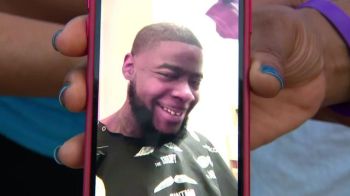With Illinois Gov. Rod Blagojevich defying calls for his resignation, state officials pondered reducing his power or forcing him from office amid an intensifying criminal investigation that has made him arguably the most toxic politician in America.
Legislative leaders in the state capital moved forward Wednesday with several fronts to deal with Blagojevich, who returned to his office in downtown Chicago a day after he was arrested on charges that he put President-elect Barack Obama‘s U.S. Senate seat up for sale.
The first fallout from the scandal also emerged, with U.S. Rep. Jesse Jackson Jr. denying any misconduct while confirming that he is the Senate candidate mentioned in the federal charges as someone Blagojevich thought would pay money to be appointed to the seat. Jackson, the son of the Rev. Jesse Jackson, said he had been assured by prosecutors he was not a target of the investigation.
Blagojevich’s decision to show up for work like it was another day at the office angered much of the state’s political establishment, and Obama and U.S. Senate leaders demanded that he step down. The prospect that the second-term Democratic governor might still try to appoint someone to the Senate also loomed.
“He appears to listen to no one, and his conduct becomes more outrageous as time goes on,” said Steve Brown, spokesman for Illinois House Speaker Michael Madigan.
Legislative leaders planned a special session Monday to strip Blagojevich of his power to pick a new U.S. senator, putting the decision in the hands of Illinois voters instead. Lawmakers also prepared to discuss the possibility of impeachment, and the attorney general researched whether there is any way to declare Blagojevich unfit to hold office.
“I just don’t foresee him being the governor indefinitely with this cloud hanging over him,” Republican Sen. Christine Radogno said. “There is an awful lot of impetus to move him out of the way.”
Blagojevich’s lawyers have insisted he is innocent, and stressed that he still has important work to do for the state of Illinois.
Blagojevich spokesman Lucio Guerrero said some of the governor’s work Wednesday involved talking with staff about the budget and a short-term borrowing plan so the state can get its hands on $1.4 billion to pay some outstanding bills.
“At the end of the day, the top priority for our office is to serve the people, and we have not lost sight of that, nor will we lose sight of that,” said spokesman Kelley Quinn, calling it “business as usual” on Wednesday, the governor’s 52nd birthday.
A day earlier, FBI agents arrested Blagojevich at his home and took him away in handcuffs. Prosecutors released a thick document that included excerpts of wiretapped conversations in which the governor allegedly schemed to enrich himself by offering to sell Obama’s Senate seat for campaign cash or a lucrative job inside or outside government.
They also alleged he pressured the Tribune Co. to fire editorial writers at the Chicago Tribune after several negative editorials about Blagojevich.
Blagojevich is charged with conspiracy and solicitation to commit bribery, punishable by up to 20 years in prison and 10 years, respectively.
More than 24 hours after the arrest, Obama joined other prominent Democrats in calling for Blagojevich’s resignation. Such a move would make Lt. Gov. Patrick Quinn the governor, and he could appoint someone to the seat.
“The president-elect agrees with Lt. Gov. Quinn and many others that under the current circumstances it is difficult for the governor to effectively do his job and serve the people of Illinois,” Obama spokesman Robert Gibbs said.
Asked whether Obama supports a special election, Gibbs said Obama believes the Illinois General Assembly should consider how to fill the Senate seat and “put in place a process to select a new senator that will have the trust and confidence of the people of Illinois.”
Senate Democrats were more pointed in a letter to the governor: They “insist that you step down” and not name anyone to replace Obama. An appointment by a new governor would “be the most expeditious way for a new senator to be chosen and seated in a manner that would earn the confidence of the people of Illinois and all Americans,” wrote Majority Leader Harry Reid of Nevada and the party’s second-ranking leader, Sen. Richard Durbin of Illinois.
They suggested the Senate might reject anyone chosen by Blagojevich. The Constitution gives the Senate authority to refuse to allow a member to be sworn in.
It was unclear what incentive the governor had to give up his office.
A resignation might make him appear guilty. The office also gives him a certain amount of clout, which can help him raise money for his defense.
Radogno said it’s possible Blagojevich would use his resignation as a bargaining chip with prosecutors and agree to step down in exchange for leniency.
When Illinois lawmakers meet Monday, they’ll consider changing state election law to fill Senate vacancies by special election, rather than leaving the decision to the governor. But holding an election could take months and give Republicans a shot at capturing a seat now in Democratic hands.
Brown, the spokesman for the House speaker, noted that any change in the law would go to the governor’s desk, where Blagojevich could let it sit and still pick a senator.
“Despite our best efforts, the governor could play hide the ball. That is an inescapable reality,” Brown said. “I’m hoping that’s not the case.”
Brown said the speaker hasn’t ordered staff to begin researching impeachment but that individual legislators are doing so. The speaker’s office also compiled a memo earlier this year on arguments for impeaching the governor.
Meanwhile, Attorney General Lisa Madigan’s office said her staff is researching whether Illinois Supreme Court rules allow a challenge to Blagojevich’s fitness to hold office. That could pressure Blagojevich to step down.
















